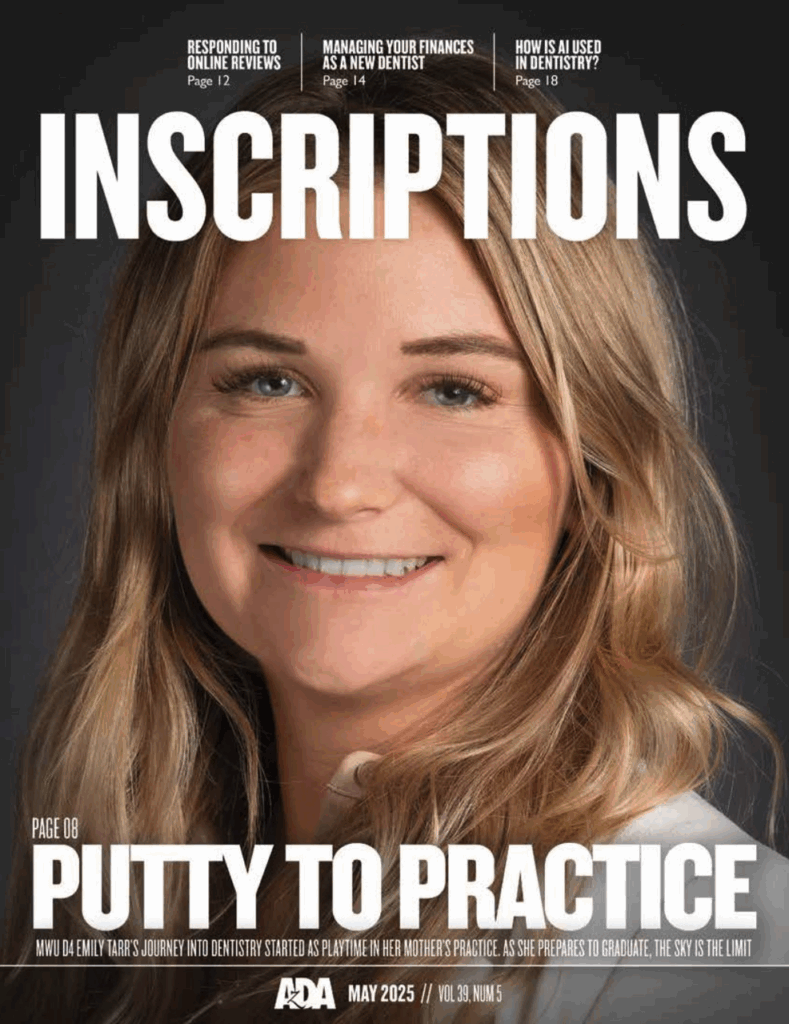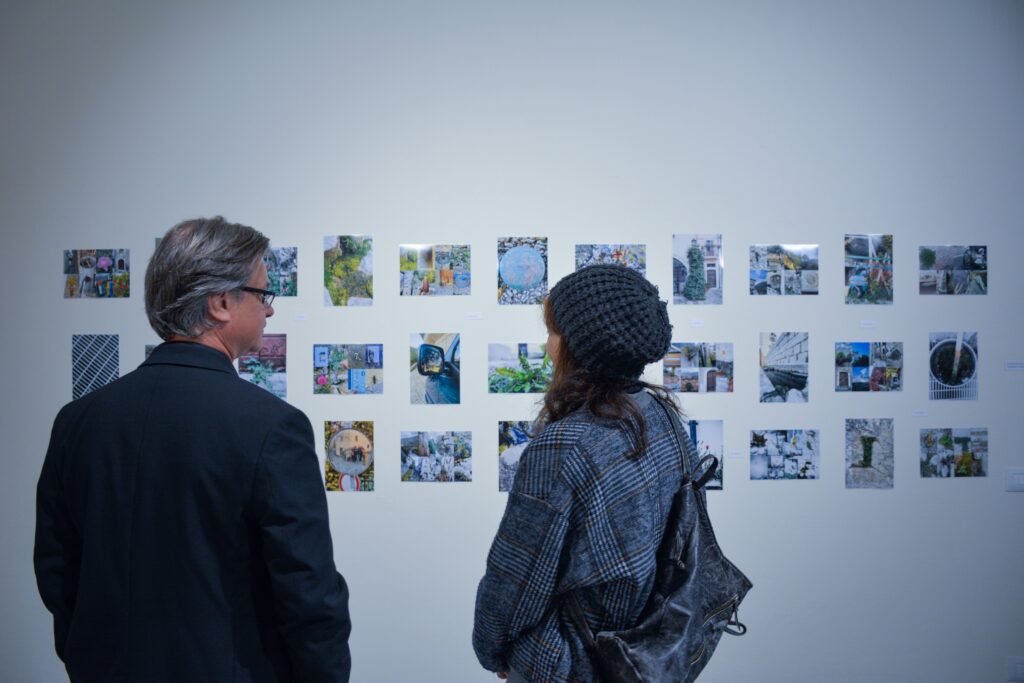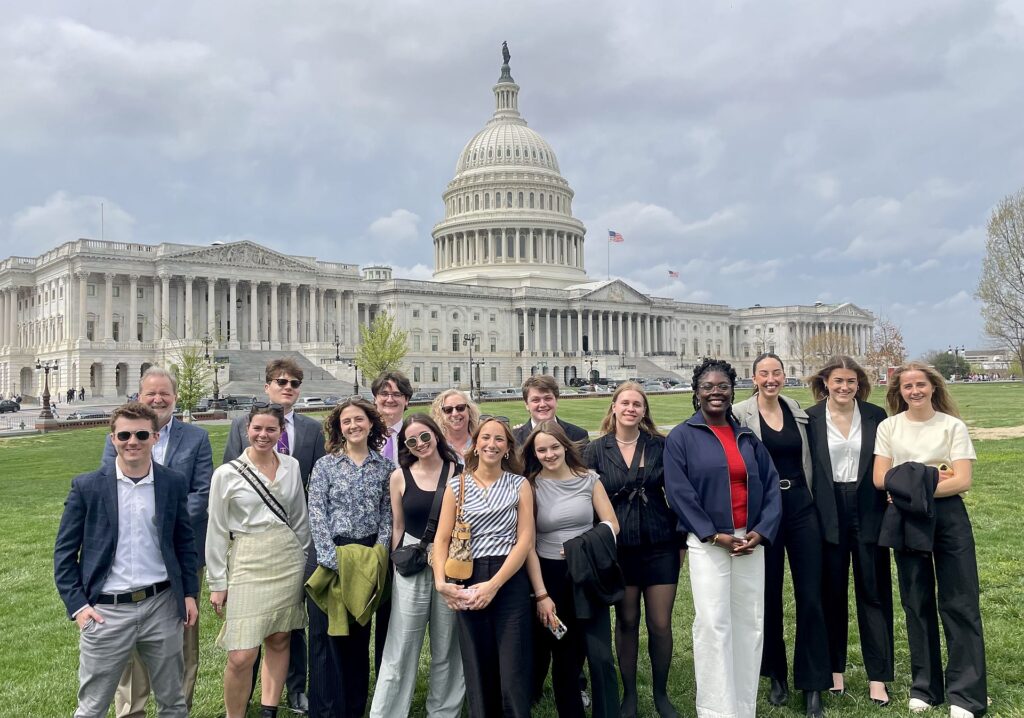Saint Michael’s College celebrated diversity, equity and inclusion during DEI Week, which kicked off on April 1. During opening remarks, Omara Rivera-Vázquez, Ph.D., who is the Director of the Institute for Equity and Justice at Saint Michael’s, said the mission of the week was to highlight the equity work that is being done at Saint Michael’s.
“We aim to inspire students, staff, faculty, to begin to do the work in their own lives and to become more compassionate, educated global citizens. Most importantly, we want to encourage members to take action and become equity practitioners,” Rivera-Vázquez said.
Student Government Association (SGA) president Dakota Thomas ’24 also spoke during the opening ceremony. Thomas explained the importance of diversity, equity and inclusion and the importance of having this week.
“A beloved community isn’t just created, it’s cultivated,” Thomas said. “We must learn to be the people we want to be in the world. Oftentimes it is not an innate skill to be an ally and to be mindful but one that you exercise over time.”
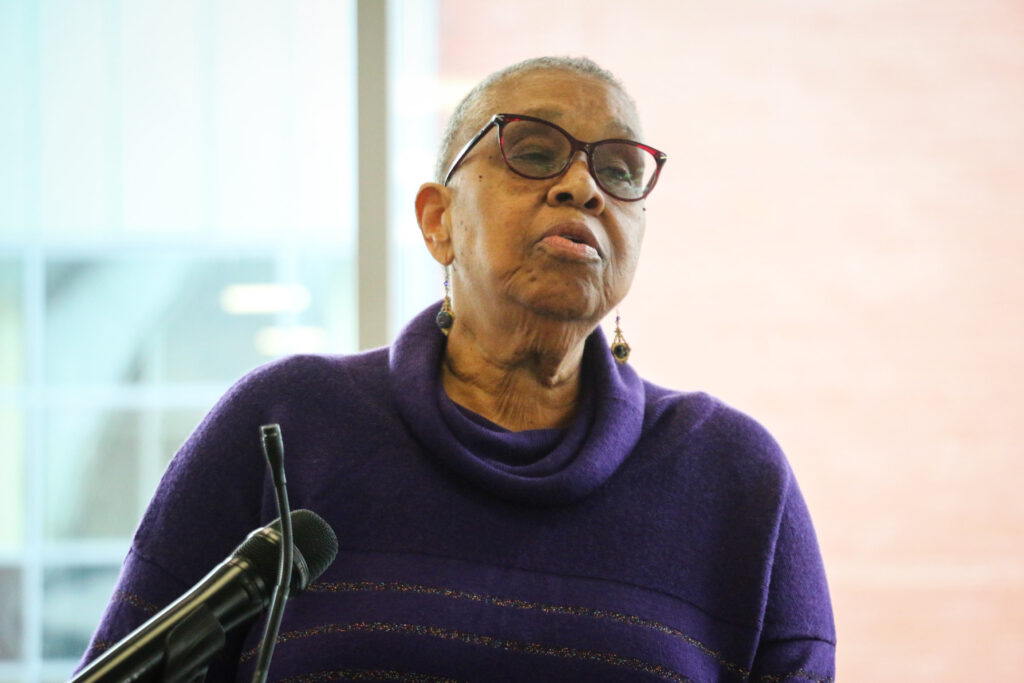
Dr. Margaret Bass (Photo by Isabella Paredes Mendoza ’24)
Following the opening ceremony, keynote speaker Margaret Bass, Ph.D. addressed the audience. Bass began by saying that “DEI is dying a slow and painful death in American higher education.” Bass was one of the first recruits to a white school, and when she went to college, there was no evidence of Black people’s existence— no books, no equity studies programs, and no support for them. The towns were equally unprepared for Black students, she said. They did not have hair salons, skin products, or Black churches.
Thirty years after her graduation, Bass went to teach in upstate New York, and said things were still the same.
“On the shelves of stores, we simply did not exist.,” Bass said.
Bass led a campaign demanding the store carry hair and skin products for Black and Brown people, that is still there today. Fifty years later, Bass said Saint Michael’s College is still facing these absences. She explained that Saint Michael’s is “overwhelming white, which is not and should not be the norm.”
Bass said she is often questioned why she works at a predominantly white school.
“Because there are Black and Brown students on every campus,” Bass said.
Bass had one Black faculty member in Ohio, who taught her the importance of representation. Through her, Bass said she learned that being there to listen, protect, and advocate became her calling.
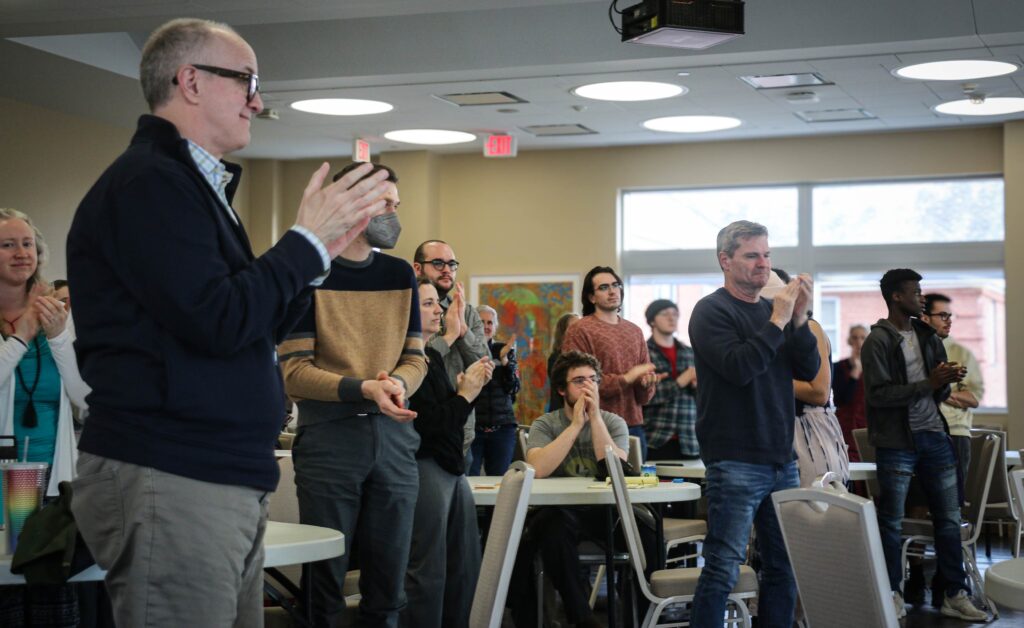
Saint Michael’s gives a standing ovation to Dr. Margaret Bass’ keynote speech. (Photo by Isabella Paredes Mendoza ’24)
“DEI is one of many experiments to make this nation live up to its ideals of freedom, liberty, and justice for all. DEI is another way for this country to fix itself,” she said, but she noted that in the 50 years since Bass graduated, DEI has yet to solve the problem. “DEI isn’t profitable. Money matters more than people do,” Bass said and explained that DEI fluctuates with the mood of the country.
“We are like fashion trends,” she said.
Bass said that DEI has grown to become more inclusive, but that inclusivity has its drawbacks as well.
“The considerations are different. We are not all marginalized in the same way,” Bass said.
“Acronyms allow us to miss the point. We are people. When you use these terms, they blur our faces. You can’t feel our pain. We become this one big blob of anything that isn’t white, cisgender, male or able-bodied,” Bass explained.
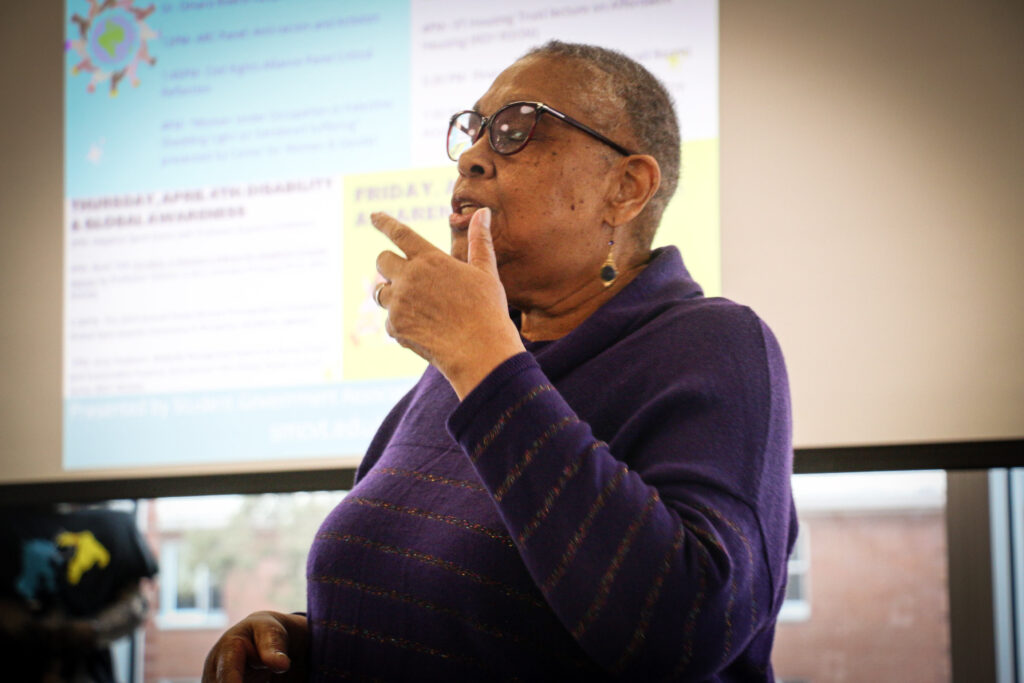
Dr. Margaret Bass (Photo by Isabella Paredes Mendoza ’24)
Bass said we are now moving back in time. She said that DEI reached its peak during Obama’s presidency, and we are now moving backward. Bass explained, there are currently 479 anti-LGBTQIA+ bills being introduced, children are not allowed to use the facilities that reflect their gender identity, and health care is becoming less accessible to transgender humans. There is also a factor of white guilt she said. Bass explained the country is banning books and shutting down programs such as equity studies and gender studies to make people feel better.
Bass said it is the students who give her hope. She urged the audience to “follow the students, such as Dakota Thomas and Jarrett Sweet who worked tirelessly to put on the events of the week.”
Bass concluded by saying, “We are not experiments. We are people. We belong. We deserve to live and breathe freedom. We deserve the freedom to be our authentic selves.”
See more from DEI Week at Saint Michael’s
Edmundite Panel in the media creation studio
Sefakor G.M.A. Komabu-Pomeyie, Ph.D., DEI Week speaker uses ‘tomato syndrome’ to talk about disability
Sefakor G.M.A. Komabu-Pomeyie, Ph.D. recently published her first book I’m Able: A Woman’s Advice for Disability Change Agents. In it, she writes about her upbringing in Ghana and her experience as a Black woman with a physical disability. Sefakor said her book, which she calls “her life story,” unravels different aspects of her identity and brings forth the need for change in our society, for it to be more accessible for those with disability.
Komabu-Pomeyie spoke on April 10, as part of Saint Michael’s DEI Week. Komabu-Pomeyie said how her identity and intersectionality has a lack of representation within today’s media. She said that by educating others, the world will become a more inclusive and accepting place for everyone. Read More
Saint Michael’s students share study abroad transformations during Global Eyes awards ceremony and reception
Each year, Saint Michael’s students who study abroad get the opportunity to share their transformative experiences with the campus community through both words and their photographs.
The Global Eyes photography competition allows students to enter their photos and captions in six categories: city life, culture most distinct from Saint Michael’s College, landscape, nature, people and the human spirit, and the essence of study abroad. The judges also awarded artistic appreciation awards, best written captions, a people’s choice award, and a best in show award. On April 3, more than 50 people braved a winter storm to attend the annual awards ceremony and view the winning photos, which are hung in Durick Library’s Dailey Room. Read More
See a Drag Show Highlights Film by Isabella Paredes Mendoza ’24

For all press inquiries contact Elizabeth Murray, Associate Director of Communications at Saint Michael's College.


